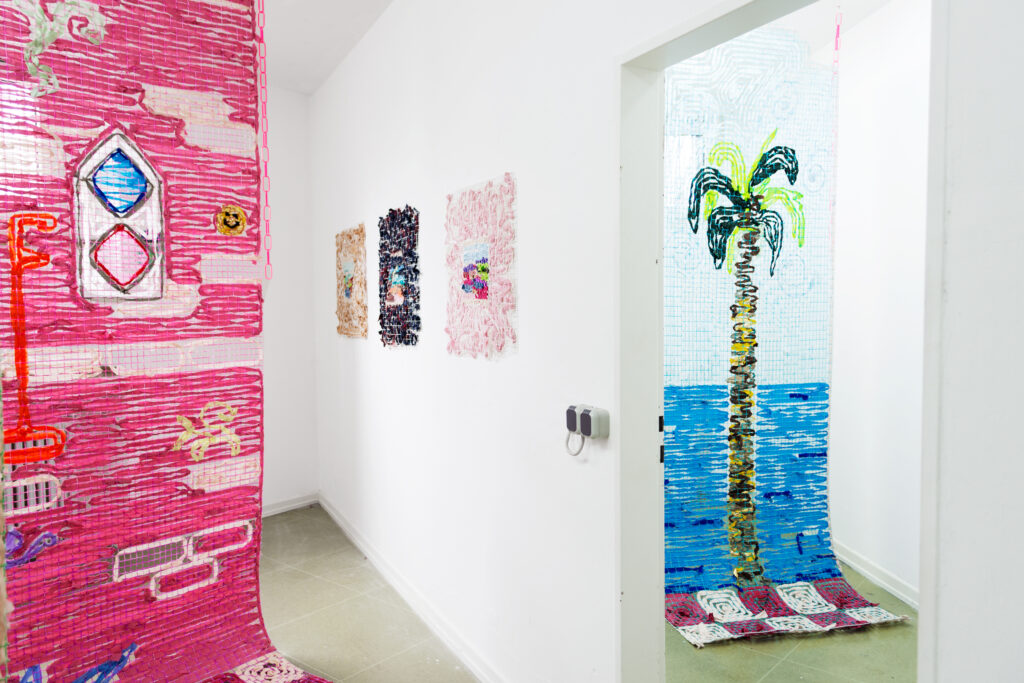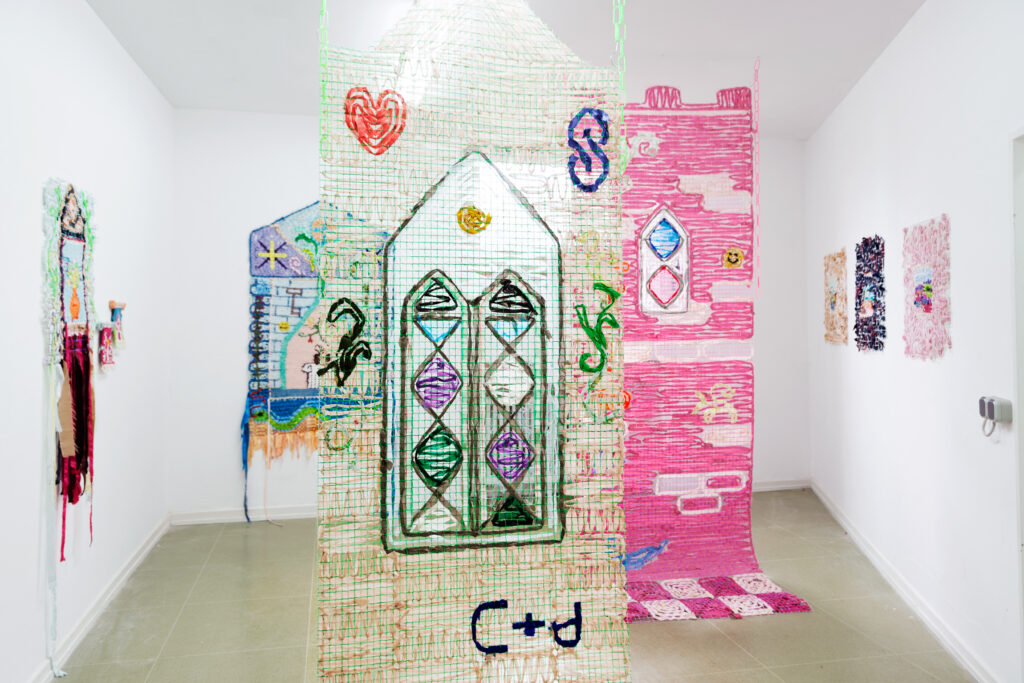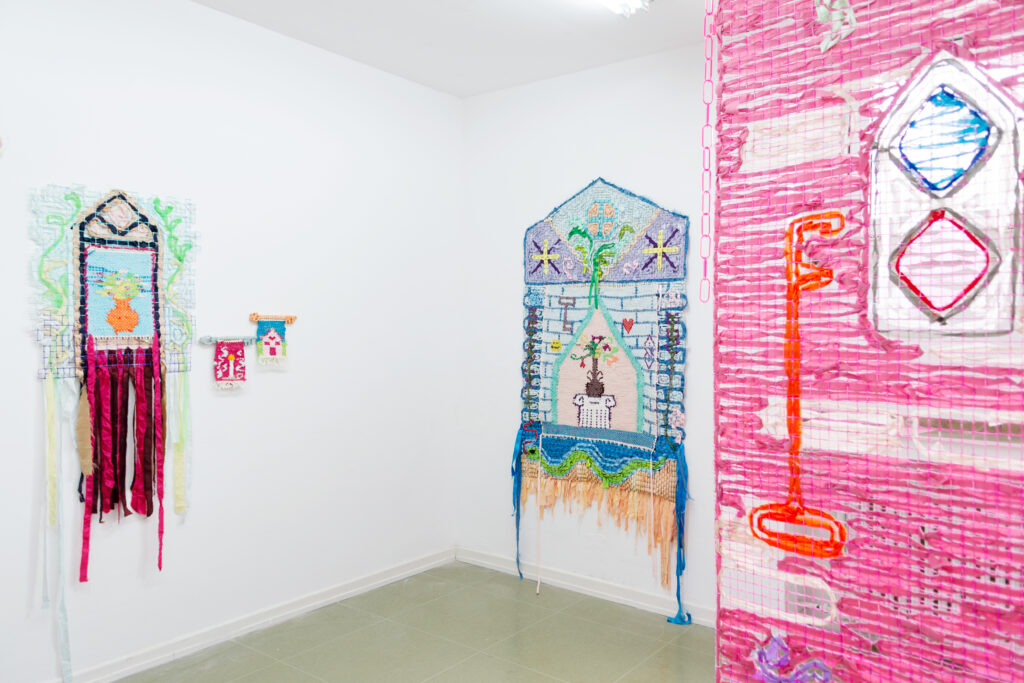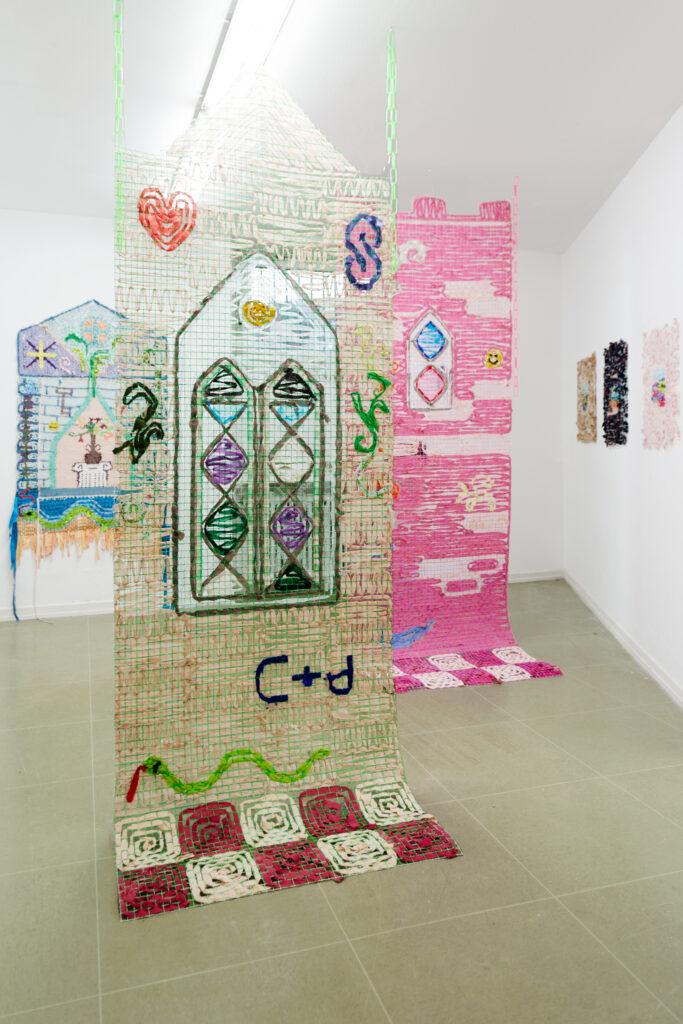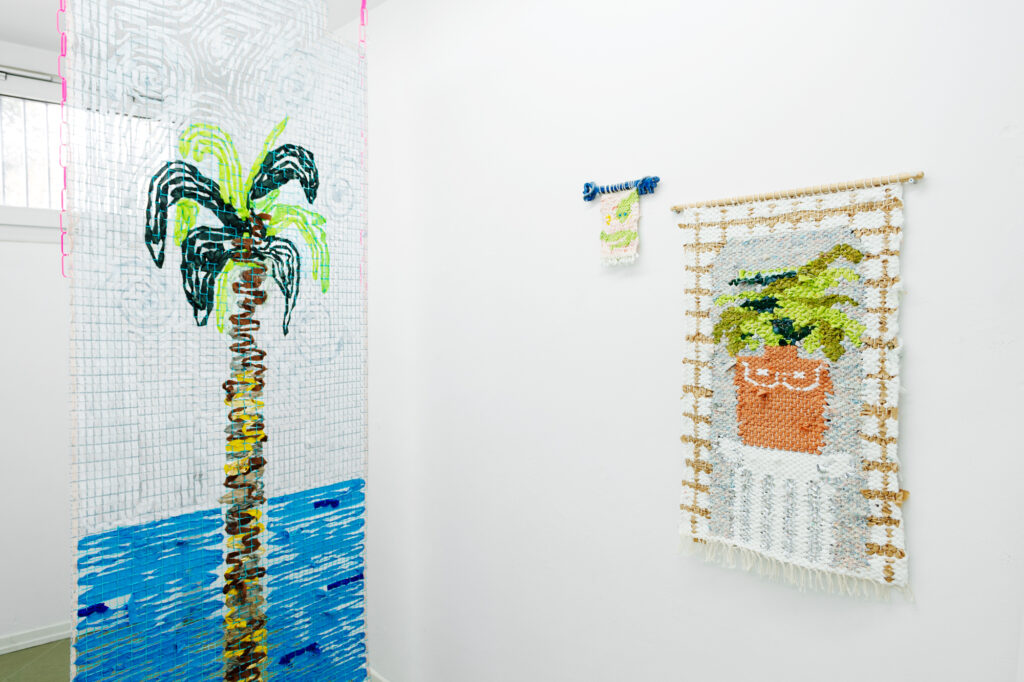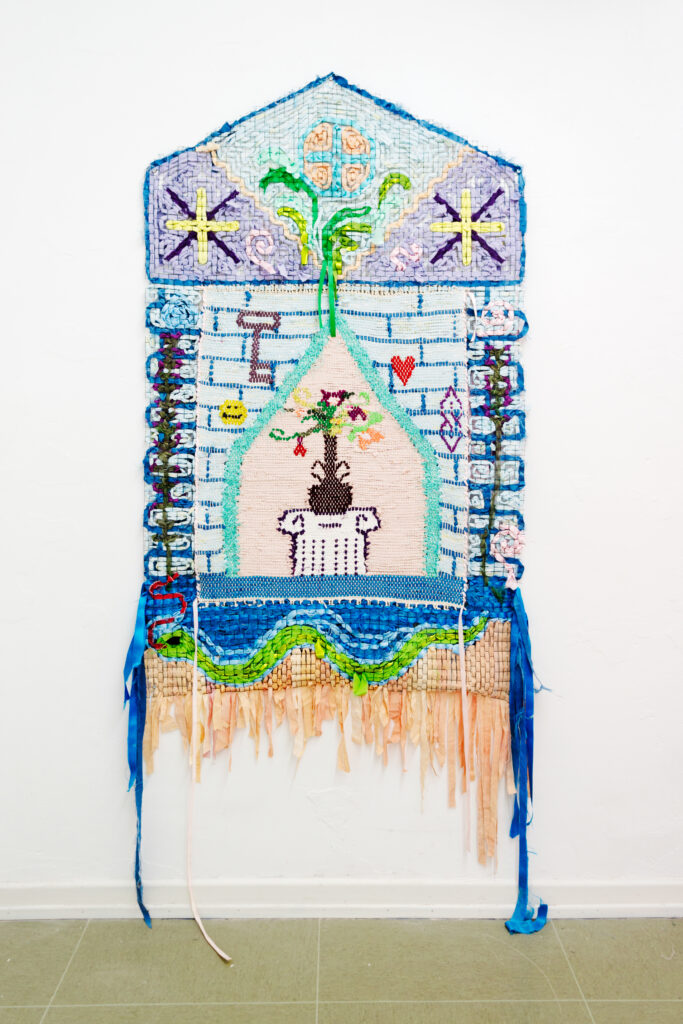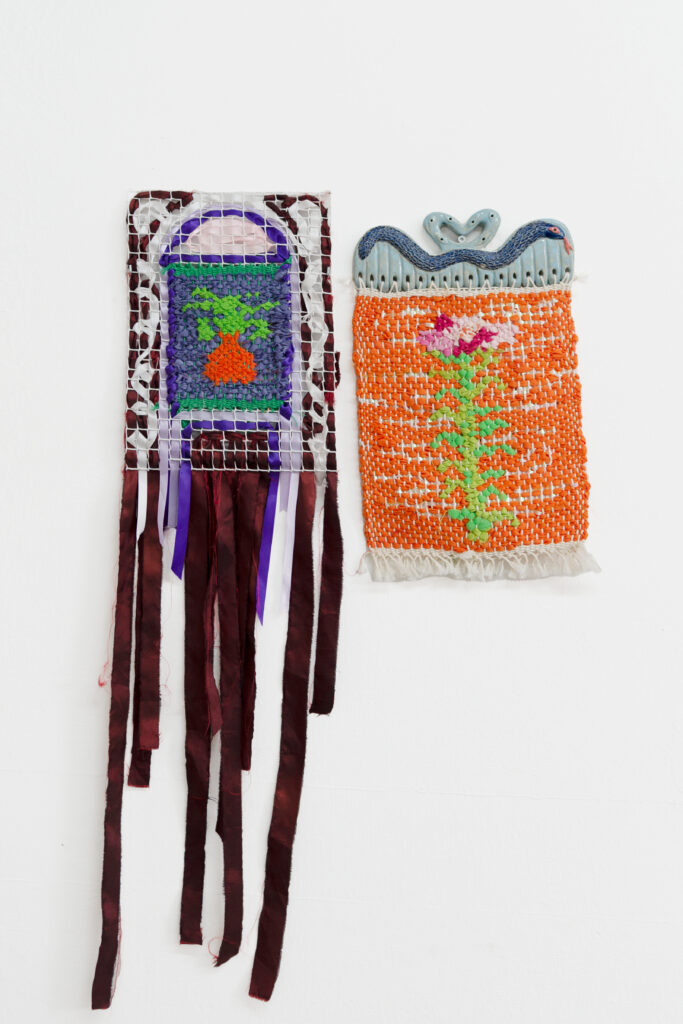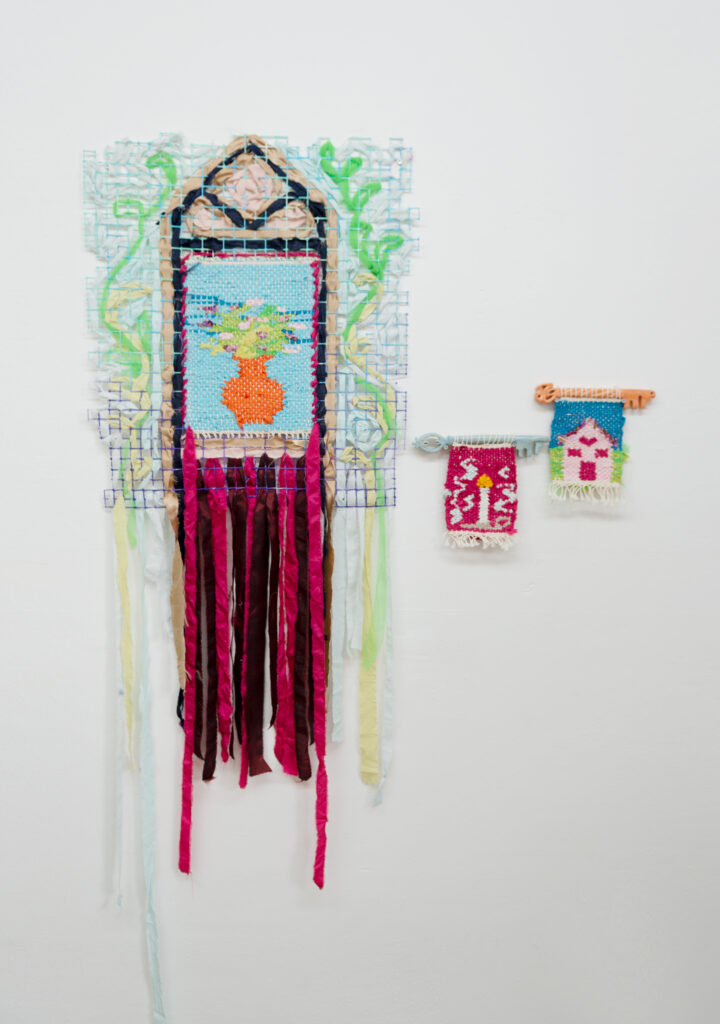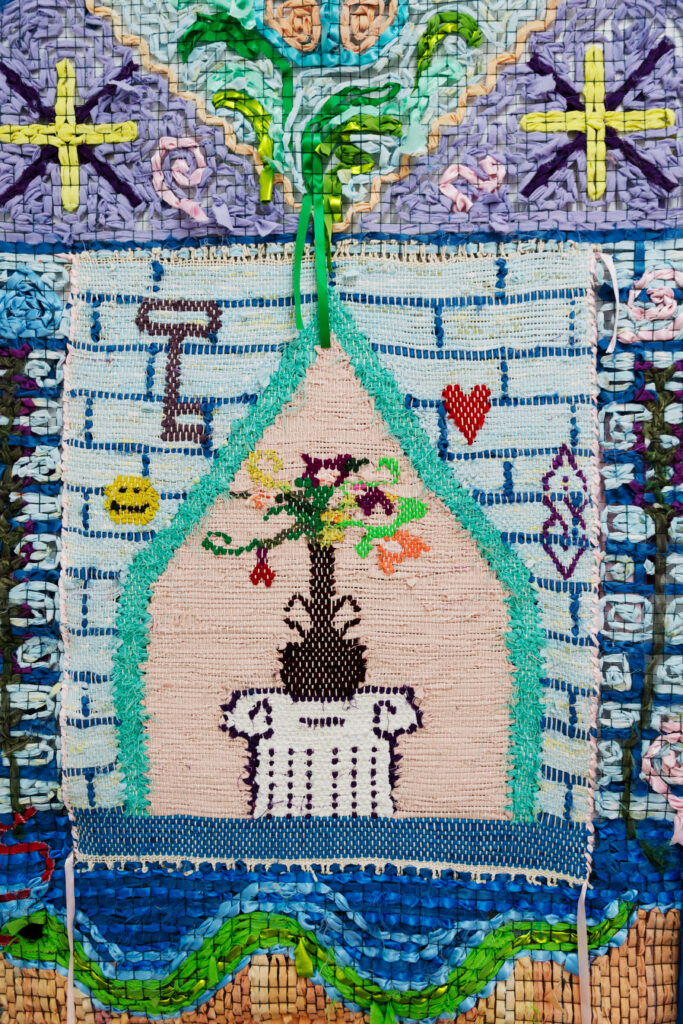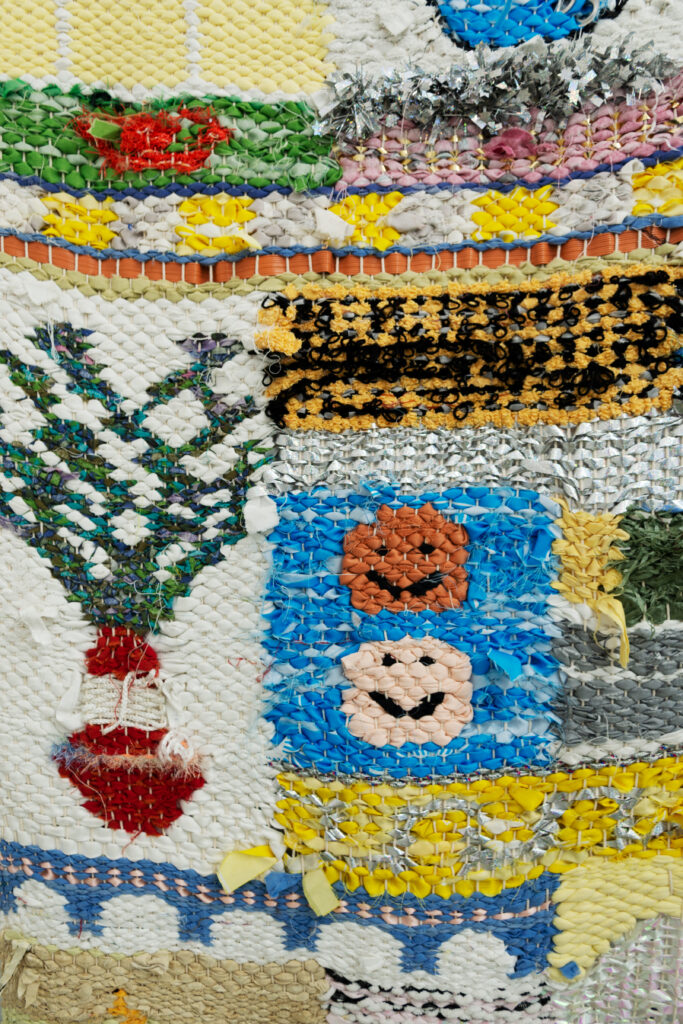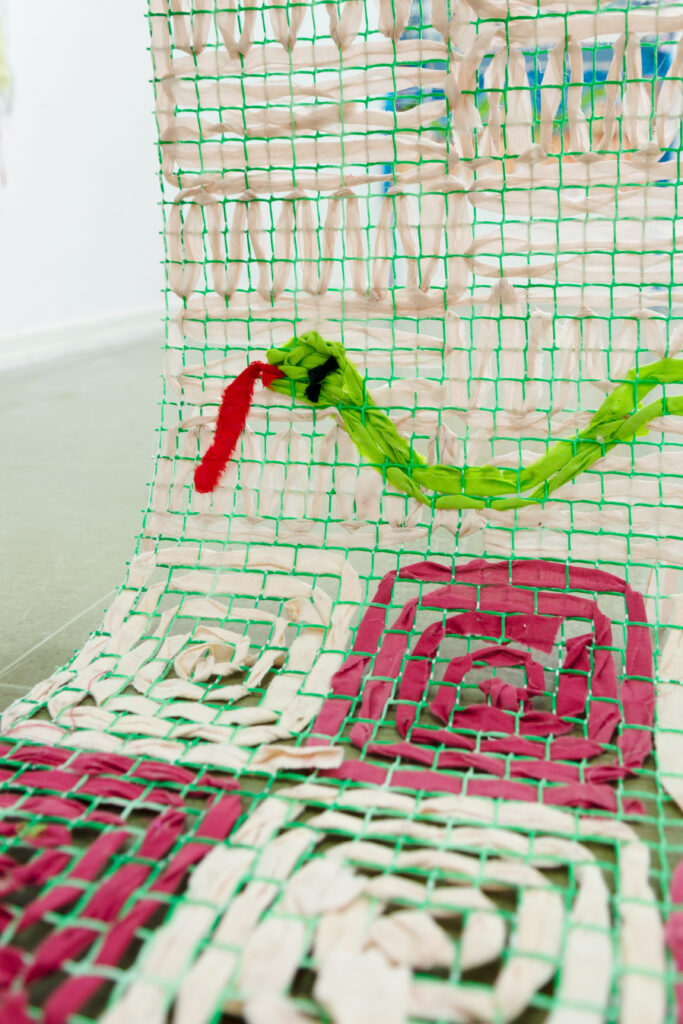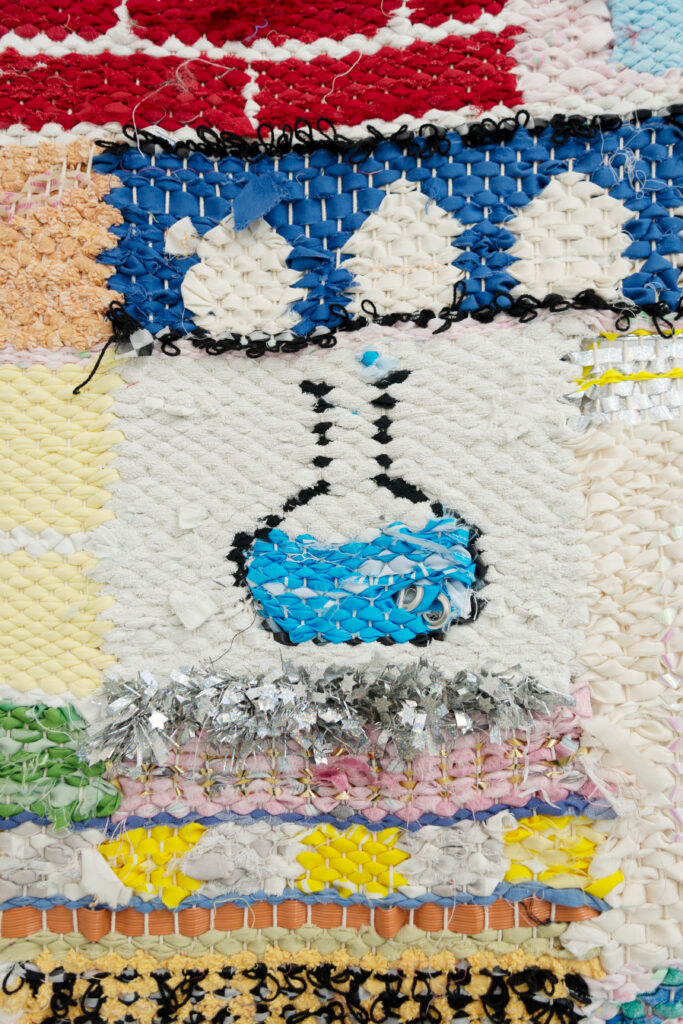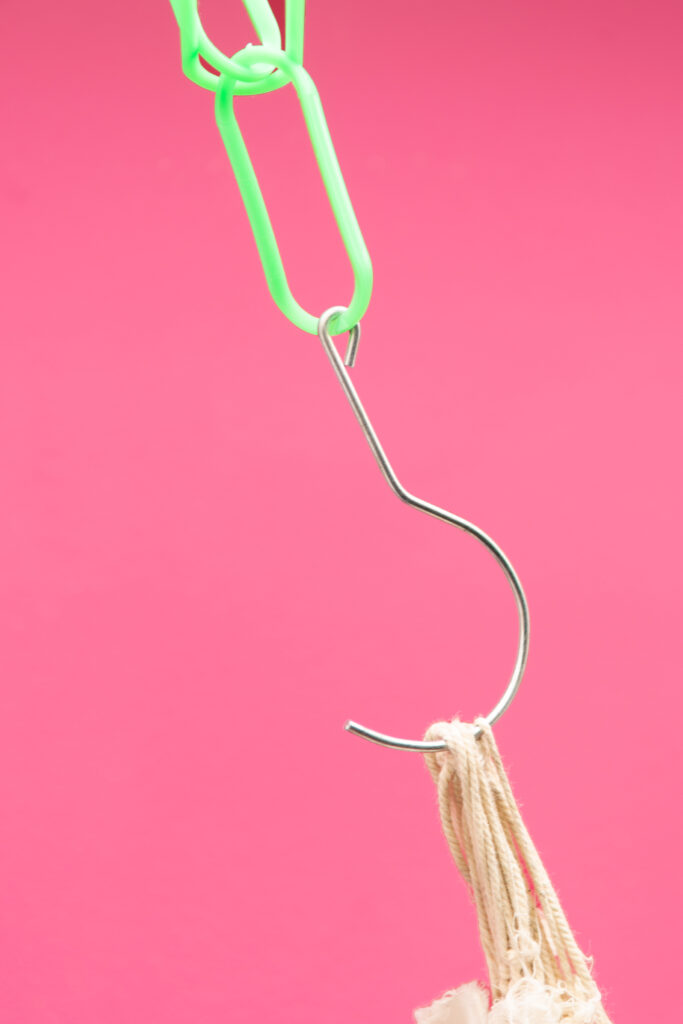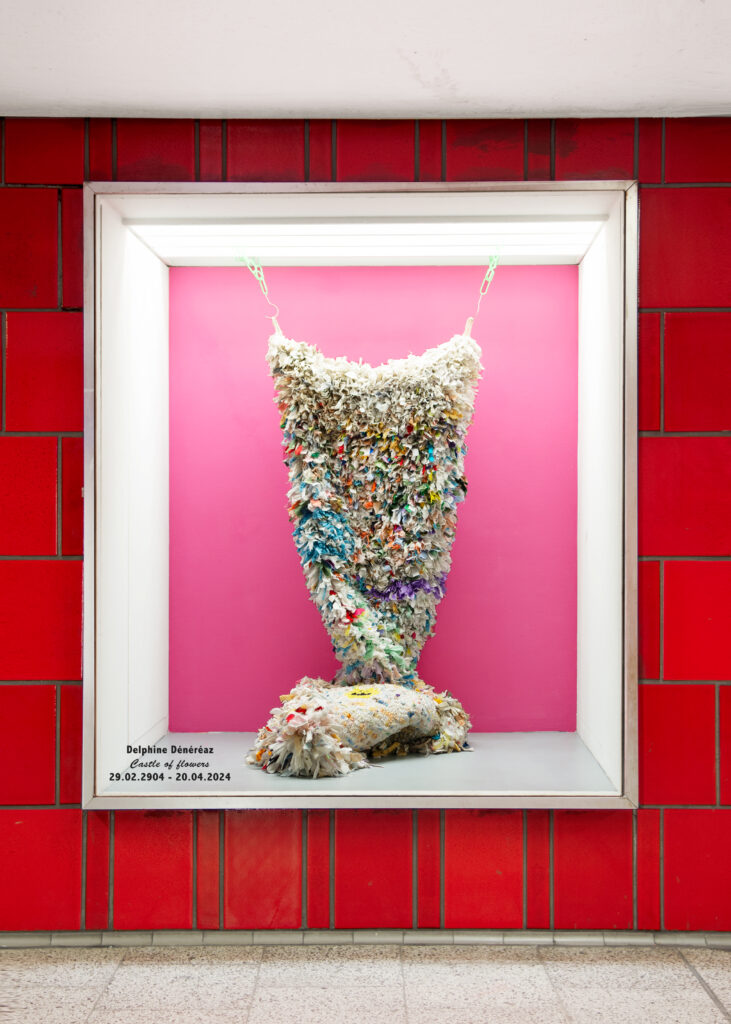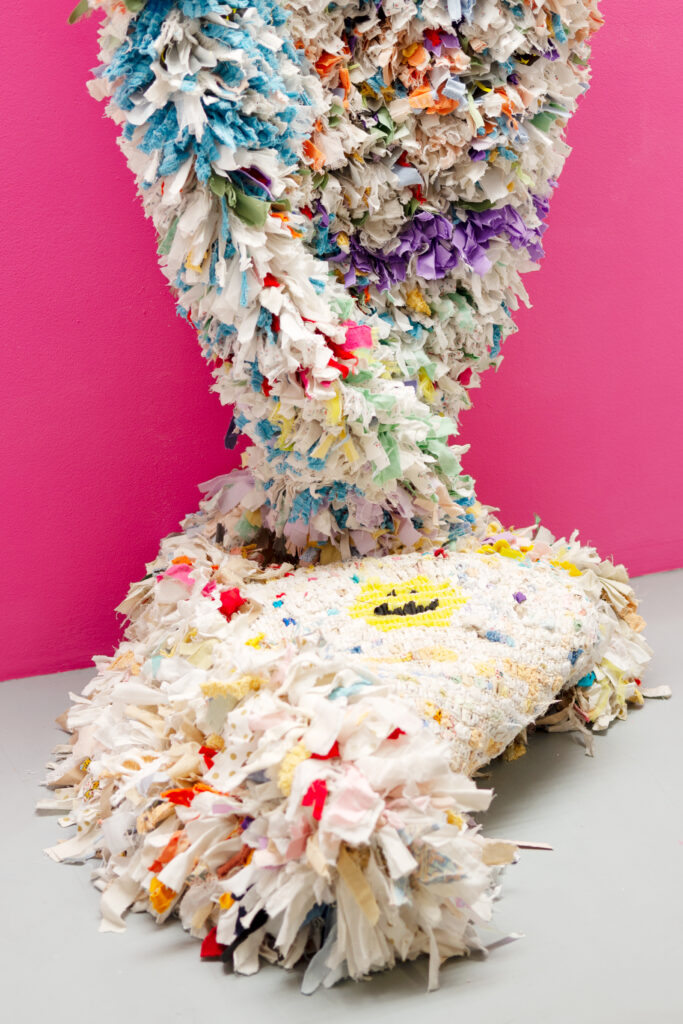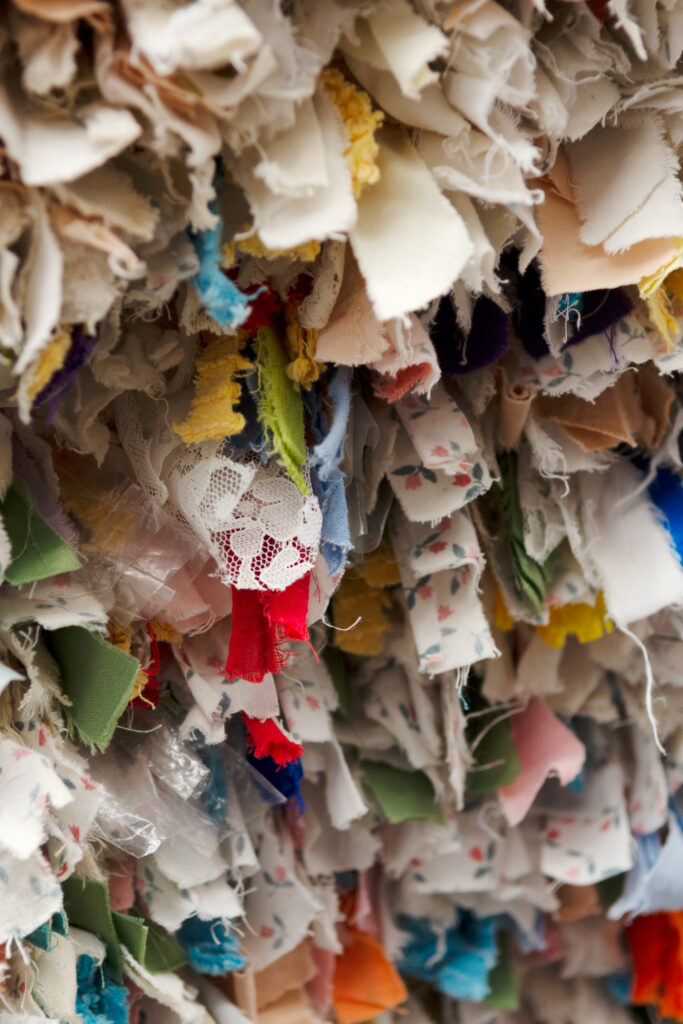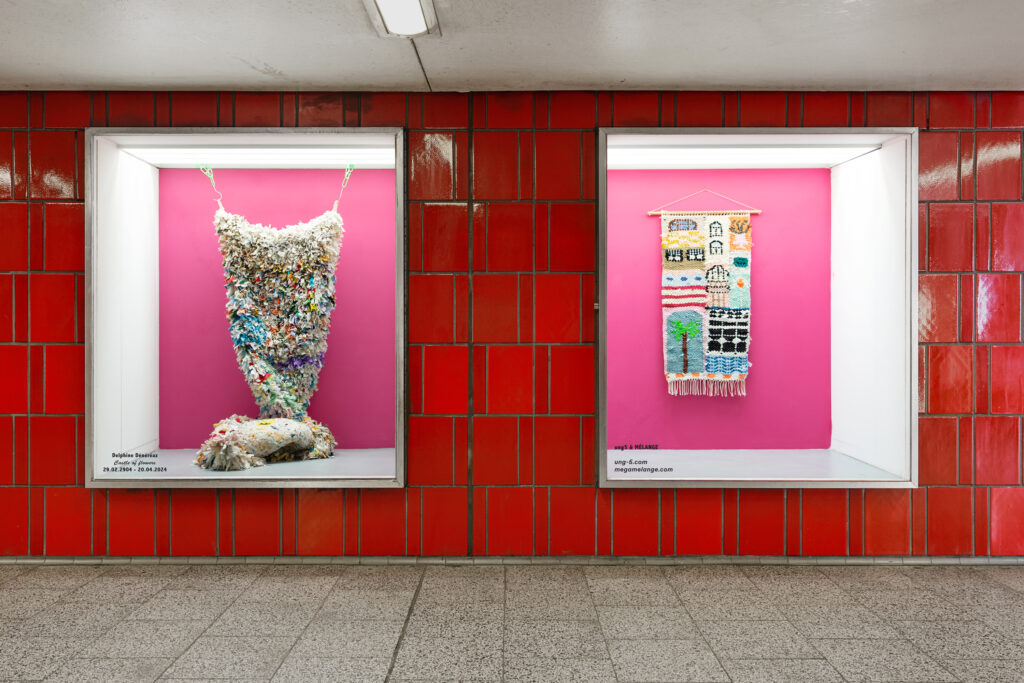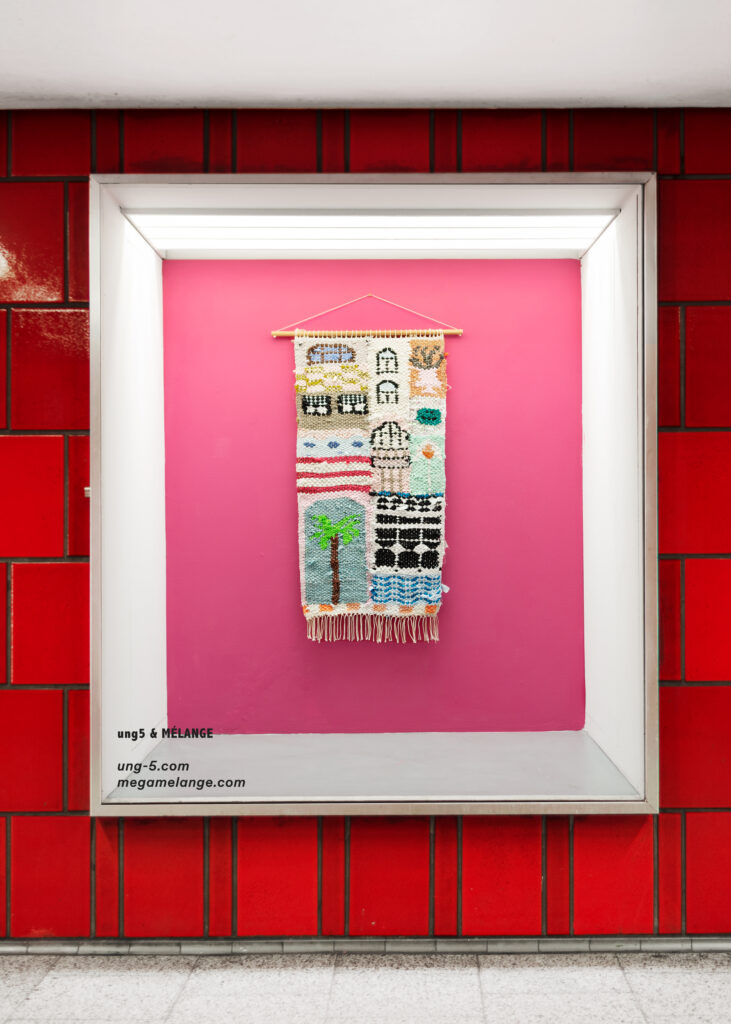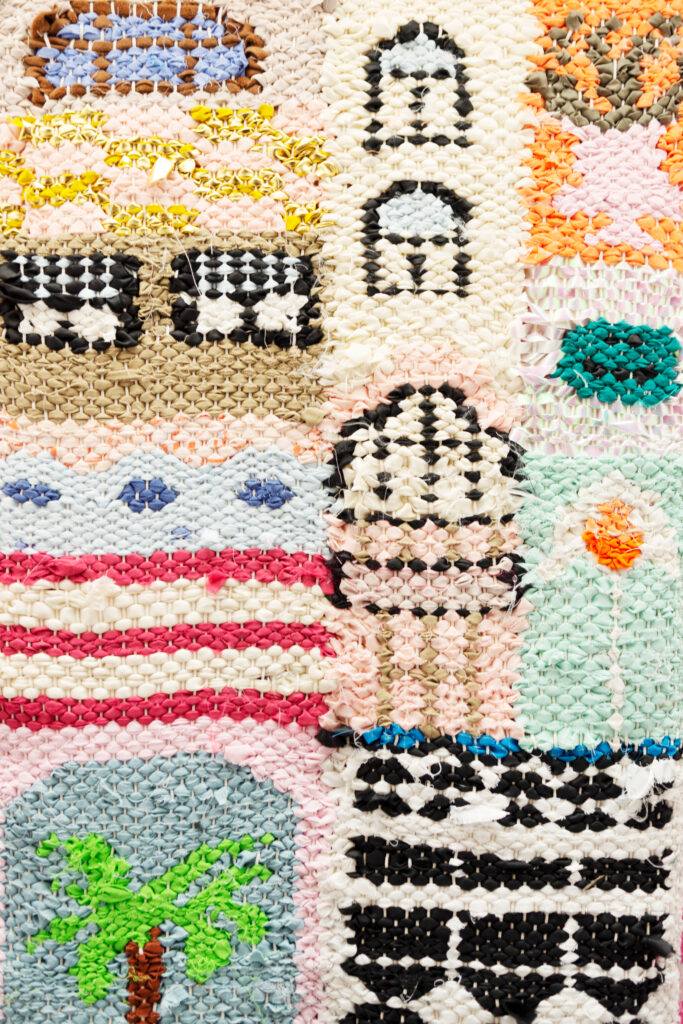With her first solo exhibition in Cologne, Marseille living artist Delphine Dénéréaz, brings a fascinating perspective on textile art to the space. Her works are not only aesthetically pleasing, but also carry an important message of sustainability and conscious consumption.
Dénéréaz’s work is characterized by her use of recycled textiles and the application of a medieval technique called „tapis de lirette“. This technique, which favors recycling and reuse, is not just a craft, but a statement for a more sustainable future. At a time when the idea of sustainability is becoming increasingly urgent, Dénéréaz reminds us that even in art, a circular economy is possible.
The concept of Cradle to Cradle (circular economy in which nothing is lost), which is increasingly finding its way into various areas of our lives, finds a particularly creative interpretation in Dénéréaz’s art. Through her unique form of production, she creates her own cradle-to-cradle system, which not only affects the creation process of her art, but also provides an impetus for a rethink in other areas.
This idea is particularly relevant in the context of the fashion industry, which is characterized by fast fashion and short-lived trends. While the concept of slow fashion is becoming increasingly important, the challenge of bridging the gap between the desire for sustainability and the temptations of consumer society remains. But artists like Delphine Dénéréaz remind us that a conscious approach to materials and resources is not only possible, but can also be inspiring.
Through her works, which focus on the production process, Dénéréaz encourages us to think about the importance of Cradle to Cradle not only in art, but in all our actions. Her textile art is not only a visual delight, but also a call for responsibility and rethinking. In our fast-paced world, Delphine Dénéréaz reminds us that beauty can also mean sustainability.
Kindly supported by
Stadt Köln & Kunststiftung NRW
